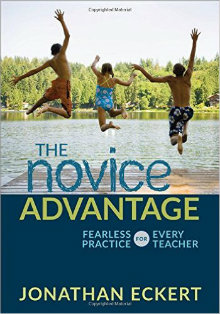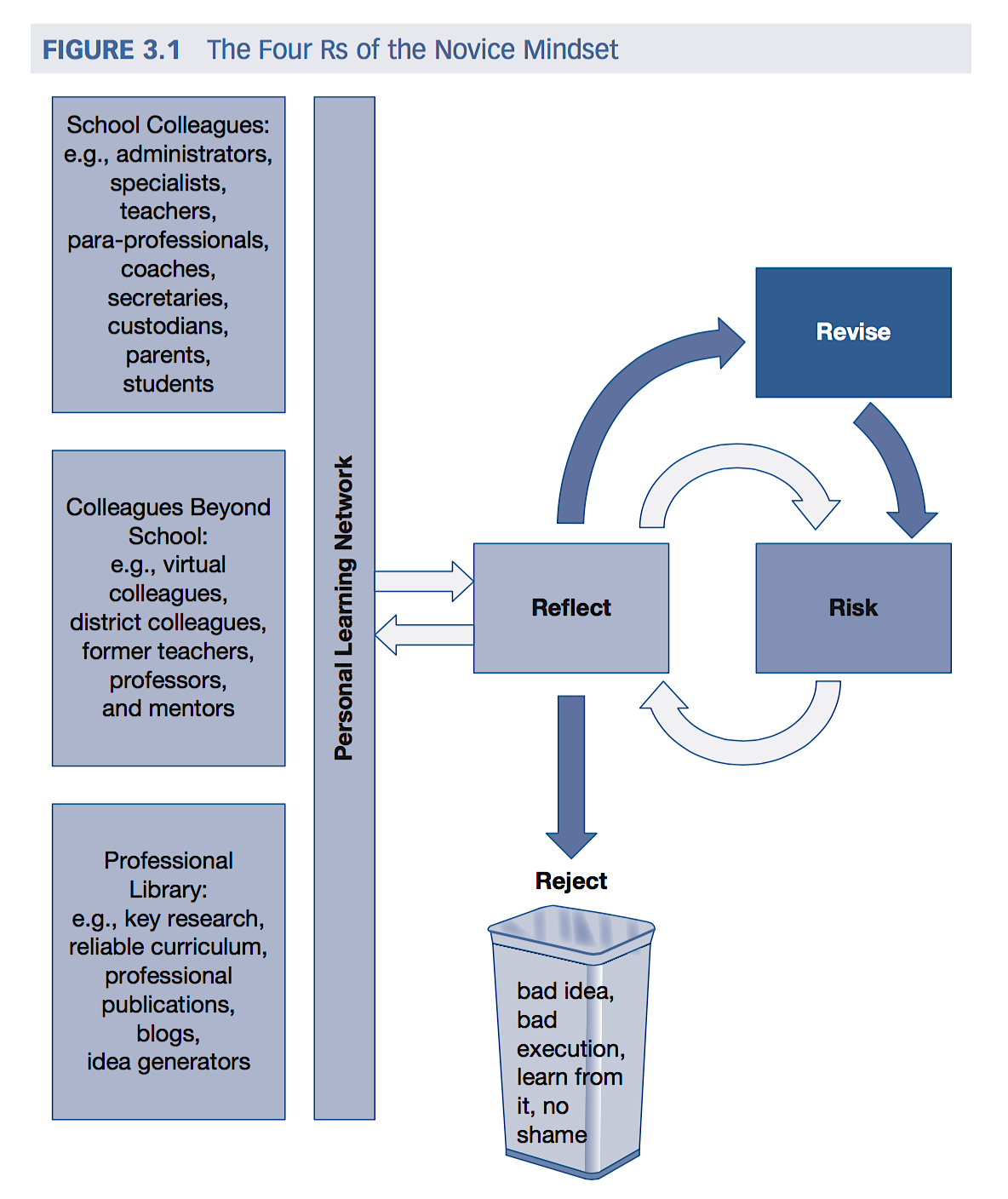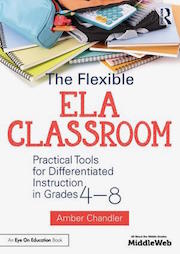The Novice Advantage Sparks Teacher Growth
The Novice Advantage: Fearless Practice for Every Teacher
By Jonathan Eckert
(Corwin, 2016 – Learn more)

Take a minute to think of the last three things you learned to do in the past six months or so. Personally, in the last six months I have learned how to conduct a webinar, play Minecraft, and use the See Saw App. I felt nerves and exhilaration with the webinar, skepticism and eventually admiration with Minecraft, and sheer excitement with the See Saw app.

Each of us has learning styles and patterns, and some people are resistant to all new experiences. If you are struggling to come up with an answer to what you’ve learned lately, then you definitely need to read Jonathan Eckert’s book The Novice Advantage: Fearless Practice for Every Teacher to help develop a “novice mindset” that will help you to grow.
If, on the other hand, you are a constant learner, you need to read this book because you’ll become more reflective about the learning you acquire.
A continually New Teacher
The premise of the book is pretty straightforward: there are great advantages to having a novice mindset because to grow as humans and teachers, we must grow past a “fixed” mindset.
If you are thinking, “Hmmm… this sounds like Carol Dweck’s Growth Mindset,” you’d be correct, and Eckert, to his credit, acknowledges this comparison right away. The distinction Eckert makes is that the novice mindset is “the belief that we grow continuously through fearless, deliberate practice” (9).
I particularly like how Eckert acknowledges the different ways teachers value learning and new experiences, as he points out “Accomplished teachers know that they never really arrive at great teaching – they are always refining their practice . . .” (9).
The book operates between this paradigm of a “new New Teacher,” one who is chronologically new to the job and a “continually New Teacher,” one who takes the time to make the tired fresh again.
One of the strongest aspects of the book is the design – the book’s graphics encapsulate the message of the reading. For example, the Four R’s of the Novice Mindset (Reflect, Risk, Revise or Reject) are simple enough in theory, but this graphic is extremely helpful to recognize this aspect of the mindset as a cycle.

The “Fearless Reflection” sections are directives – moments in the book when the author directly speaks to the reader, asking us to answer questions, think about what we’ve just read, etc. The book’s entire first half is almost a centering of the reader, a repositioning of the reader within the context of achieving a Novice Mindset, pointing out “Without the struggle, that celebration is relatively cheap and meaningless” (63).
The Novice Mindset at work
The book then takes a turn for the concrete over the philosophical, moving from the idea to the action, from the mindset to the actual classroom. Though there were examples from real classrooms in the first half, the second half is extremely practical, with very specific instances of the Novice Mindset at work outlined through conversations and observations.
The focus zooms in on the students themselves, asking us as teachers to do the same with our frame of reference: stop looking for a placebo until the next big thing comes along, and take the time to realize that the “next big thing” is already here: she is sitting in your second row, and if you don’t get to know her, you’re missing your purpose and you’re wasting your time. Until a teacher can engage students by getting to know them, the teacher won’t be a novice, but instead just lost. Eckert succinctly explains, “We should develop relationships with others because of who they are and not what they can do for us.”
A call to action
Perhaps the best use of this book would be as a book study for faculty. The last section, “A Guide to The Novice Advantage,” is a call to action. Eckert explains that any good book he’d ever read had two consequences: he thought about the world differently and he wanted to talk to others about it.
I agree with his sentiment, and his “Reflecting Fearlessly Together: Discussion Starters” would make a fabulous book club guide, or even the questions for a slow Twitter chat. Any staff who grew together into teachers with a Novice Mindset could harness the enthusiasm of the “new” teacher and capitalize on the wisdom they have as a faculty, continually challenging one another to learn something new from one another.
Looking back on the three things I’ve learned in the last six months, I too was a novice. I was willing to make myself vulnerable for the sake of learning. It’s worth noting who I learned from: the webinar was from an editor (a superior of sorts), the Minecraft was from my 8-year-old, Oliver (someone not usually considered the expert), and the See Saw App was from another teacher (a peer).
The Novice Advantage encourages these types of experiences and is written in a way that not only promotes us to have conversations like this, but also appreciates the variety of teachers out there – bosses, students, and fellow teachers – noting that with the right mindset we are all experts and novices.

































Love this idea and particularly how “Eckert explains that any good book he’d ever read had two consequences: he thought about the world differently and he wanted to talk to others about it.” Thanks for sharing his work.